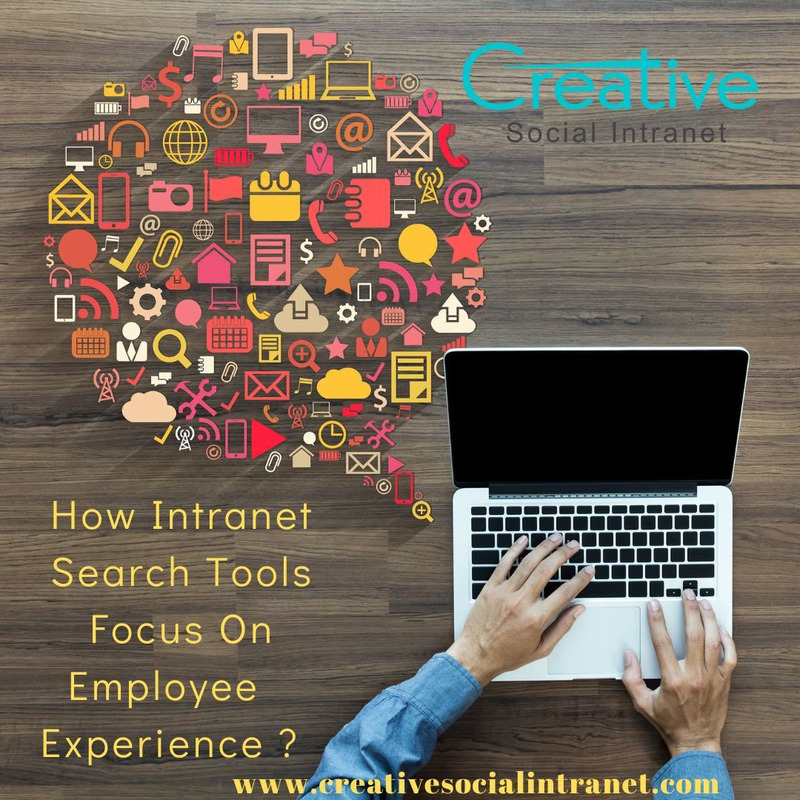Creative Social Intranet Envisions Focus On Employee Experience
Date: 13-May-2022

Why has employee experience suddenly become the buzzword after years of talking about employee involvement, advocacy, and satisfaction? Covid was, without a doubt, the key driver. The epidemic increased the adoption of remote working by a few years. For some, this was a good thing since it meant that many businesses could keep the lights on, but it often came at the expense of employees who were experiencing record levels of stress and burnout. Creative Social Intranet strongly advocates the use of employee experience software that helps in measuring a host of employee-relevant metrics.
Since whole-organization platforms like intranets generate a virtual home experience, employee experience software is considered a key driver in this transformation journey. Employees may access corporate software, tools, and conversations via the company intranet. At Creative Social Intranet, we continuously study the usage patterns across intranets and deliver a contemporary intranet platform that companies and employees love to engage with.
The first priority for any member of the C-Suite is to bring all employees together to accomplish common goals and drive corporate success. It may appear impossible to link such company-wide or strategic performance metrics to an internal communication platform. An intranet, on the other hand, maybe a significant employee experience platform, influencing how employees engage with who you are, what you do, and your long-term goals.
An intranet is more than just a communication tool: it’s the only digital workplace platform that’s specifically built to influence the employee experience. It will provide returns on key HR objectives such as workplace happiness, retention, engagement, and more, by supporting anything from well-being to promoting your business brand.
Ask basic questions to guide the creation of a business case before you start:
With these questions in mind, you may make early decisions that will increase the likelihood of a successful outcome.
It’s critical to identify the target audience for your business case as well as the decision-makers who will be responsible for signing off, approving, or implementing your project. Keep in mind that these two groups aren’t always mutually exclusive: you may be asked to present your business case to one group, which will subsequently elevate it to the next level, depending on your individual company. Stakeholders will have different levels of interest and authority.
A basic stakeholder map, such as the one below, is the easiest approach to identify these and calculate the degree of commitment necessary for each group.
To prove that a new intranet platform may address an unmet challenge in your organization, look at the goals that your intranet will help you reach. These are usually divided into two types: general and specific. Generic goals are frequently high-level and difficult to measure. They won’t necessarily be outlined in company strategy, but they have a lot of promise for intranet projects and should be fully explored.
Due diligence for a business software acquisition involves a bit more effort than simply reading a few Yelp reviews. Creating a strong intranet business case also entails proving to decision-makers that you’ve weighed your organization’s demands against what’s already on the market.
Although being aware of what might harm your firm is vital, the main benefit of addressing risks in your business case is to show how they can be detected and controlled to reduce possible financial damage. The “what if?” analysis is a type of contingency planning. Essentially, you should use this part to demonstrate that you’ve considered risks, that you know how to plan for them if they emerge, and that your strategy can withstand a setback.
Different decision-makers and stakeholders will communicate in a variety of ways, which can be difficult to manage. As a result, it’s important to plan ahead for all conceivable scenarios and preferences.
It’s worth producing these three elements unless you’re following a rigid, preset template:
While employee experience became a new way of thinking about the employee-organization connection this year, the concepts for its enhancement are far older. People will remain with you longer and perform better if you can develop amazing (digital) workspaces that they want to be a part of. Internal communications are a key part of it because being informed and connected is also important for a better work experience. The tools you need are accessible and can help you develop that communication culture, whether you name it intranet software or an employee experience platform.
ENGAGEMENT DRIVE PERFORMANCE